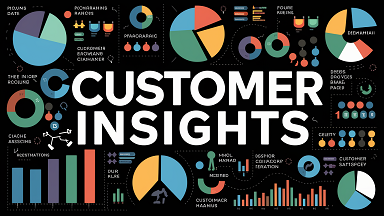
AI for Small Businesses
The winds of change are blowing through the business panorama and Artificial Intelligence (AI) is at the helm. No longer the stuff of science fiction, AI is rapidly transforming industries and even small businesses have the opportunity to harness its power to achieve remarkable growth.
But Don’t be discouraged by the heavy technical terms. Integrating AI doesn’t require a doctorate in robotics; it’s about finding practical solutions that address your specific challenges and power your business forward.
Dive deeper into the 5 actionable ways you can integrate AI and unlock its potential.

-
Automate Repetitive Tasks, Unleash Your Inner Innovator
Recall the long stretches of time dedicated to answering repetitive customer inquiries. Consider them banished.
AI-powered tools like chatbots can now tackle these repetitive tasks with remarkable efficiency. Chatbots equipped with natural language processing (NLP) can answer FAQs, personalize responses based on context and even resolve simple customer issues.
Free up your valuable time and resources by letting your virtual assistant handle these repetitive tasks.
Implementation in Action
Free CRM Chatbots: Explore readily available chatbot platforms like HubSpot or ManyChat, offering free plans with basic NLP features.
Specialized Solutions: For unique needs, consider industry-specific chatbot solutions like BotSociety for eCommerce or Drift for sales teams.
Custom Chatbot Development: Invest in custom chatbot development if you require specific functionalities or branding integration.
The key is to start with specific, well-defined tasks that are rule-based and data-driven. By automating these repetitive processes, you can reclaim your time and energy to focus on the strategic initiatives that truly drive growth.

Chatbot
-
Become a Customer Whisperer with AI-powered Insights
In business, understanding your customers is like having a secret weapon. But gleaning meaningful insights from vast amounts of data can feel overwhelming.
AI can analyze your customer interactions, website behavior and social media engagements to uncover hidden patterns and preferences.
These insights are invaluable for segmenting your audience, personalizing marketing campaigns and recommending products they’ll actually love.
Implementation in Action
Built-in Analytics Tools: Leverage user analytics features within email marketing platforms like Mailchimp or social media dashboards like Facebook Insights.
Free & Paid Analytics Platforms: Explore free tools like Google Analytics or consider paid platforms like Mixpanel or Heap for more advanced capabilities.
Customer Sentiment Analysis: Utilize advanced AI-powered tools like Brandwatch or Hootsuite Insights to analyze customer sentiment across social media and online reviews.
Data is only as valuable as its interpretation. Combine AI insights with your own understanding of your customer base to create targeted experiences that foster loyalty and drive sales.

-
Predict the Future, Optimize Now with AI-powered Operations
Wouldn’t it be amazing to predict future needs and have the perfect amount of stock at all times?
With AI, that’s not just a fantasy! By analyzing historical data and identifying patterns, AI can predict future demand, streamline inventory management and even suggest optimal pricing strategies.
This translates to reduced costs, improved efficiency and the ability to anticipate market shifts before they hit.
Implementation in Action
Free Inventory Forecasting Tools: Utilize basic forecasting tools like Zoho Inventory or ForecastNow to get started.
Subscription-based Platforms: Invest in industry-specific platforms like Fishbowl for retail or Loket (App) for manufacturing, offering advanced AI-powered demand prediction.
Custom AI Development: Consider partnering with AI specialists to develop customized solutions for complex forecasting needs.
Don’t just rely on AI predictions blindly. Use them as informed suggestions, factoring in external factors and market trends before making crucial business decisions.

-
Unleash Your Inner Content Creator with AI Assistance
Writer’s block? Struggling to generate engaging content for your website or social media? Worry no more!
AI writing assistants can assist you in various ways, from generating topic ideas and headlines to suggesting keywords and even writing drafts.
They’re not here to replace you, but rather to empower you to create high-quality content that resonates with your audience.
Implementation in Action
Free Writing Assistants: Experiment with tools like Jarvis or Rytr, offering basic features like content outlines and keyword suggestions.
Paid Platforms with Specialized Features: Explore platforms like Copy.ai or Writesonic, which offer industry-specific content templates and personalized writing styles.
Professional AI Writing Services: For complex content needs, consider collaborating with professional AI writing services that offer human editing and review.
AI-generated content is just a starting point. Your human touch and editorial skills are still crucial to add personality, brand voice and ensure factual accuracy.

-
Target Like a Pro with AI-powered Advertising & Sales Tools:
Today, targeted marketing strategies are the new norm.
AI-powered advertising tools can help you reach your target audience with laser precision, maximizing your marketing budget and delivering impactful results.
Implementation in Action
Platform-Specific AI Features: Utilize built-in advertising tools with AI features offered by social media platforms like Facebook Ads or search engines like Google Ads. Start by experimenting with targeting options based on demographics, interests and online behavior.
Advanced AI Advertising Platforms: Explore platforms like Albert.ai or Optmyzr, which leverage AI for audience segmentation, ad copy optimization and real-time campaign adjustments.
AI-powered Sales Tools: Consider sales solutions like Gong.io or Chorus.ai, which use AI to analyze sales calls, identify sales opportunities and recommend coaching tips for your team.
AI-powered advertising and sales tools are like powerful telescopes.
They help you see and understand your target audience with remarkable clarity.
But don’t forget the human touch. Use these tools to inform your strategy, personalize your outreach and build genuine connections with potential customers.

Adopt the Ethical Side of AI
As you embark on your AI journey, remember the responsibility that comes with it. Here are some key ethical considerations.
Transparency: Be upfront with your customers and employees about how you’re using AI.
Data Privacy: Prioritize data security and ensure compliance with relevant regulations.
Fairness & Bias: Mitigate potential biases in AI algorithms to ensure fair and ethical treatment for all.
Responsible Use: Align your AI applications with your values and social responsibility goals.
By adapting AI thoughtfully and ethically, you can unlock its life-changing potential while contributing to a positive and sustainable future.
Don’t expect AI to be a magic solution; it’s a powerful tool that requires thoughtful application.
By implementing these practical strategies about Artificial Intelligence and prioritizing ethical considerations, you can empower your small business to achieve remarkable growth in the exciting new era of AI.
So, step into the future, understand its possibilities and watch your business flourish.














